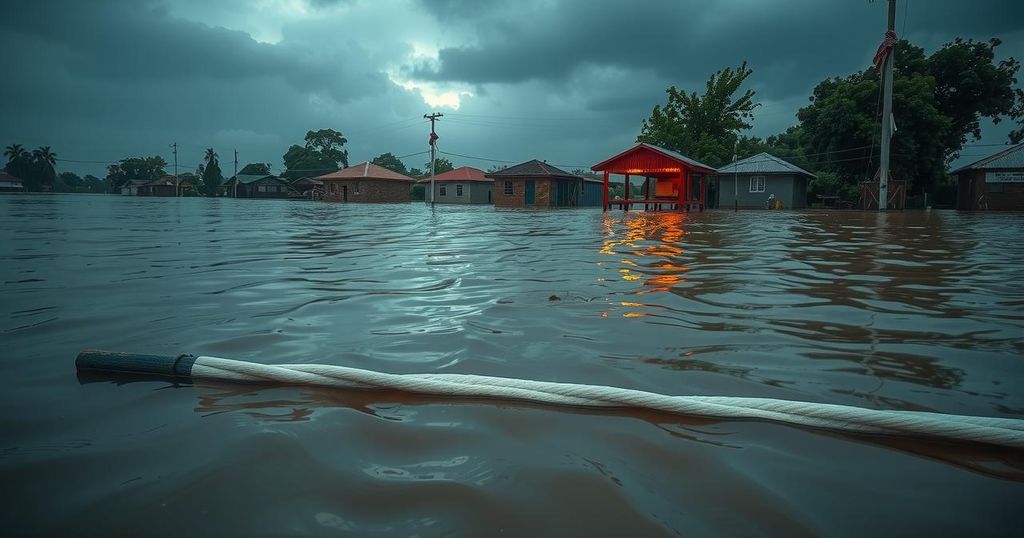The UN reports severe flooding in South Sudan has impacted over 1.3 million people, displacing 327,000 and rendering critical supply routes impassable. Additional assessments highlight worsening humanitarian access, with predictions of continuing above-average rainfall and deteriorating food security.
The United Nations humanitarian agency has reported that severe flooding, resulting from heavy rains across various regions of South Sudan, has impacted more than 1.3 million individuals. According to an update from the UN Office for the Coordination of Humanitarian Affairs (OCHA), which was released in Juba, the nation’s capital, the flooding has displaced approximately 327,000 people across 42 counties and the Abyei Administrative Area. Furthermore, joint assessments carried out by government and interagency teams over the past week have identified an additional 230,000 individuals in the states of Jonglei, Northern Bahr el Ghazal, and Upper Nile as being affected by the disaster. OCHA emphasized that the ongoing severe rainfall and resultant flooding have rendered 15 critical supply routes impassable, severely restricting humanitarian access to the communities in need. The agency cautioned that the deterioration of access is exacerbated by continuous flooding, as individuals seek refuge on elevated areas due to impassable roads. As South Sudan experiences some of its most devastating flooding in decades, the resulted impact has left countless homes and livelihoods adversely affected, with vital infrastructure submerged in water and numerous communities devastated. Looking ahead, the United Nations has projected above-average rainfall and river flows from Uganda, which may lead to historic levels of flooding. South Sudan is identified as one of the 18 hunger hotspots worldwide, with deteriorating food security conditions, as highlighted by early warnings from UN agencies regarding the acute food insecurity situation expected from June to October.
South Sudan has been grappling with recurrent flooding over the years, which has significantly hindered humanitarian efforts and intensified the ongoing food insecurity crisis within the country. The extreme weather conditions, compounded by inadequate infrastructure and ongoing conflicts, have contributed to the precarious living situation for many civilians. The recent assessments provided by UN agencies illuminate the scale and severity of the flooding’s impact, underscoring the urgent need for international assistance and intervention to address both the immediate and long-term humanitarian needs of the affected populations.
The ongoing flooding in South Sudan has resulted in a humanitarian crisis affecting over 1.3 million people, with significant numbers displaced and access to essential supplies severely hindered. As the nation endures some of its worst flooding in decades, the urgent need for humanitarian aid and infrastructure support becomes increasingly critical, particularly as food security continues to deteriorate in this volatile region.
Original Source: www.thehansindia.com






